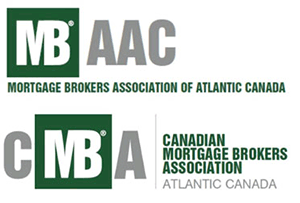
Renewal Shock Ahead: How to Prepare for Higher Payments
August 15, 2025 | Posted by: Keith Leighton

Renewal Shock Ahead: How to Prepare for Higher Payments
Introduction
Over the next 12 to 18 months, thousands of homeowners in Nova Scotia, Prince Edward Island, New Brunswick, and Newfoundland and Labrador will be renewing their mortgages. For many, the monthly payment at renewal will be noticeably higher than what they are paying now. This increase is often called “renewal shock,” and it can put significant pressure on household budgets if there is no plan in place.
Why Renewal Shock Is Happening
During the early years of the pandemic, mortgage rates were at historic lows. Many Atlantic Canadians locked in fixed rates between 1.5% and 2.5%. Those rates are not available today. Even with recent Bank of Canada rate cuts, most borrowers renewing this year will see new fixed or variable rates in the range of 4% to 4.5%.
To put this into perspective, a homeowner with a $350,000 mortgage amortized over 25 years at 2% has been paying around $1,480 per month. At a 4.25% rate, the same mortgage payment would rise to roughly $1,875 per month. That is an increase of almost $400 every month.
Signs You Might Be at Risk
• Your current rate is much lower than today’s available rates.
• Your household budget is already tight and has little room for added expenses.
• You have a variable rate mortgage and your payment has been adjusted upward multiple times over the past two years.
• You have other debts that are also becoming more expensive.
Steps to Reduce the Impact
1. Start the Conversation Early
Do not wait until your lender sends you a renewal letter. Contact your mortgage broker six to twelve months before your term ends. This gives you time to compare offers from multiple lenders, hold a rate in advance, and consider restructuring options.
2. Consider a Rate Hold
Many lenders will allow you to lock in a rate for up to 120 days before renewal. This can protect you from future rate increases while still allowing you to benefit if rates drop before you sign.
3. Explore Refinancing
If you have built up equity, refinancing can help you consolidate higher-interest debts into your mortgage, spread out the repayment, and possibly lower your overall monthly payments.
4. Adjust the Amortization Period
While it will extend the length of your mortgage, increasing your amortization can reduce the monthly payment and create some breathing room in your budget. This can be a short-term strategy until rates become more favourable.
5. Make Lump Sum Payments Now
If you have extra savings, consider making a lump sum payment before renewal. This will reduce the balance and lessen the impact of a higher rate.
The Role of a Mortgage Broker
Ideal Mortgage broker works with multiple lenders, including those that may offer more competitive rates or flexible terms than your current bank. Our brokers can also guide you through the math, show you the difference between fixed and variable options, and help you build a renewal plan that fits your financial situation.
Bottom Line
Renewal shock does not have to derail your financial stability. By preparing well in advance, exploring all available options, and working with a trusted Ideal Mortgage broker, you can navigate the transition and keep your payments manageable.
